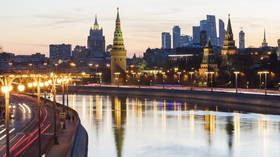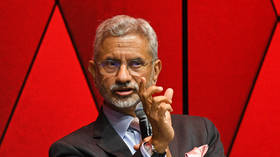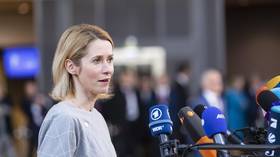Chief FARC negotiator to RT: ‘Nobel Prize will help drive peace talks over the line’
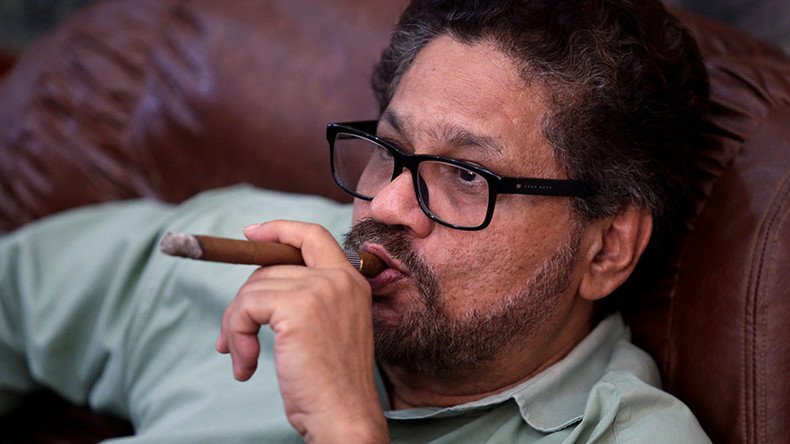
Ivan Marquez, who heads FARC’s diplomatic mission as it seeks to end its standoff with the Colombian government, admitted that guerilla leaders are heading back to the frontline following the failure of the recent peace deal referendum, but told RT he remains hopeful.
“We believe that the Nobel Peace Prize will help President Santos bring to completion the ratification of the peace, which was signed in Havana, a ratification that is currently impossible,” said Marquez, whose real name is Luciano Marin Arango, in a sit-down interview with RT in the Cuban capital. “But the most important thing is that the president finds a way to realize Colombians’ dream of a dignified existence.”
In June, FARC and the government signed a historic deal in Havana to end the five-decades-long Marxism-inspired rebellion, which has claimed an estimated 220,000 lives. The “resolute efforts” of Colombian President Juan Manuel Santos earned him the Nobel Peace Prize, announced Friday.
But despite international acclaim, the peace drive was dealt a blow a week ago when Colombians rejected the terms of the mooted deal by a margin of less than 0.5 percent, in a referendum in which fewer than 38 percent voted.
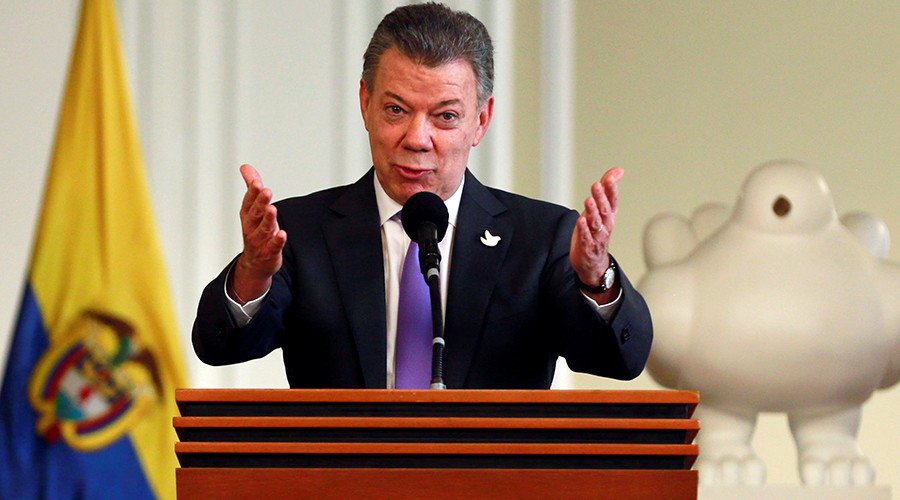
In the wake of the result, Santos announced that the provisional ceasefire will run out at the end of this month.
“It is true that the rebel commanders present at the various peace negotiations are returning to their camps and frontlines all over the country. Following the government’s announcement about the October 31 date, we are taking measures to ensure security in the areas where we operate,” Marquez said.
“But we are not doing this in preparation for another confrontation, but to prevent any situations that could sabotage the healthy atmosphere of the peace process, and the growing trust between the sides. We also believe that we are dealing with a Colombian army that sees us differently than in the past.”
Colombia-watchers have speculated that the greatest risk to stability now comes not from the leadership of FARC or the government, but impatient local paramilitary commanders, skeptical of a mutually-beneficial resolution, or other rebel groups, looking to take advantage of uncertainty to muscle in on FARC turf.
Local reporters have suggested that the October 31 date was put forward by Santos to force opponents of the agreement currently on the table to state their conditions as quickly as possible.
Chief among those is former right-wing president Alvaro Uribe, who led the successful 'No' campaign, calling for greater punishments for the FARC leadership – who would avoid jail entirely under the current terms – and clarity over the judicial process that will follow the permanent ceasefire.
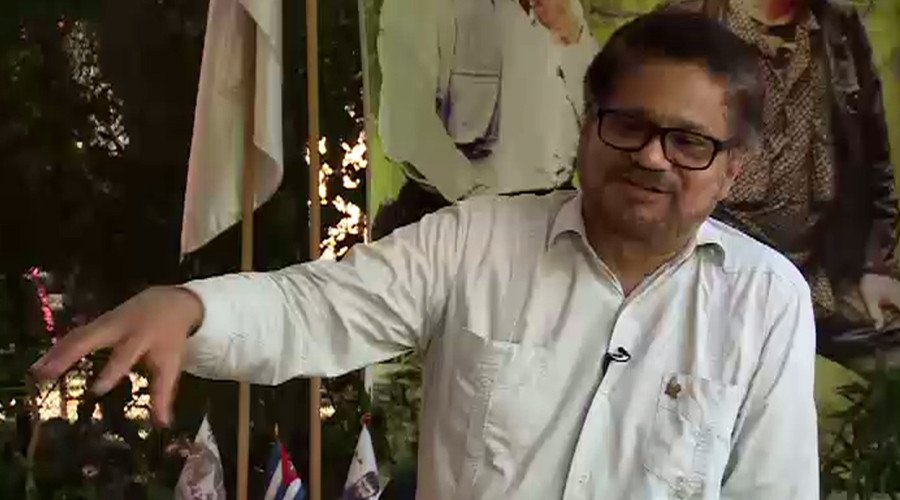
Uribe has already assembled a team of negotiators, who will have weeks to bring new creases to an agreement that was four years in the making.
“Uribe is the source of discord in Colombia. If we entrust him with the peace process, Colombia will turn into hell. He simply wants to derail the peace agreement, to destroy it,” said Marquez, noting that “Colombia knows Uribe well” from years when he ordered full-scale military campaigns against the guerillas. “He failed to win the war, now he wants to prevent peace. We need to unite as a nation to put this man in his place.”
“We need to learn to coexist so that we can put into practice Gandhi’s principles of non-violence. We need to also need to implement political, economic and social reforms. Without them, there can be no peace.”



